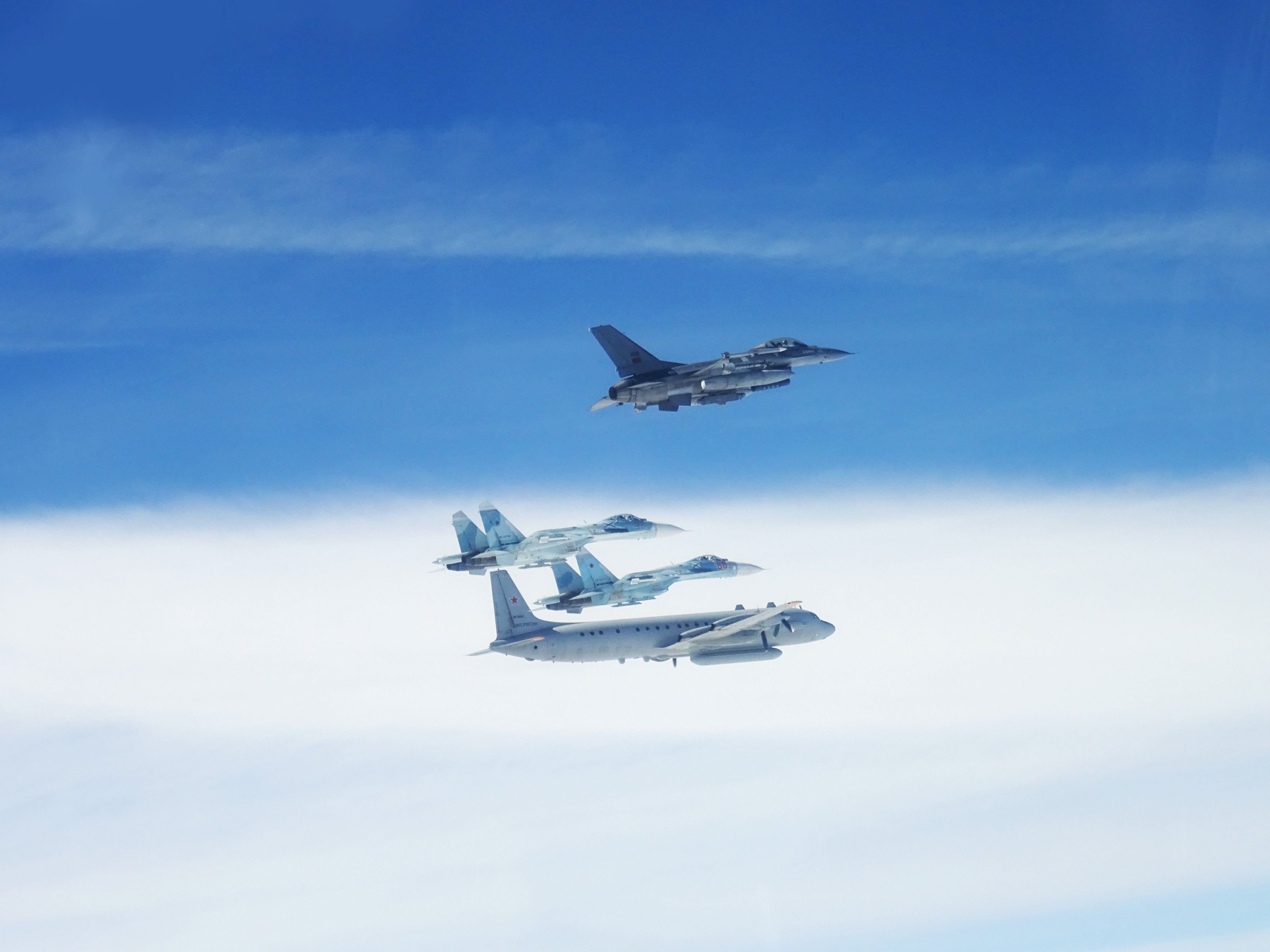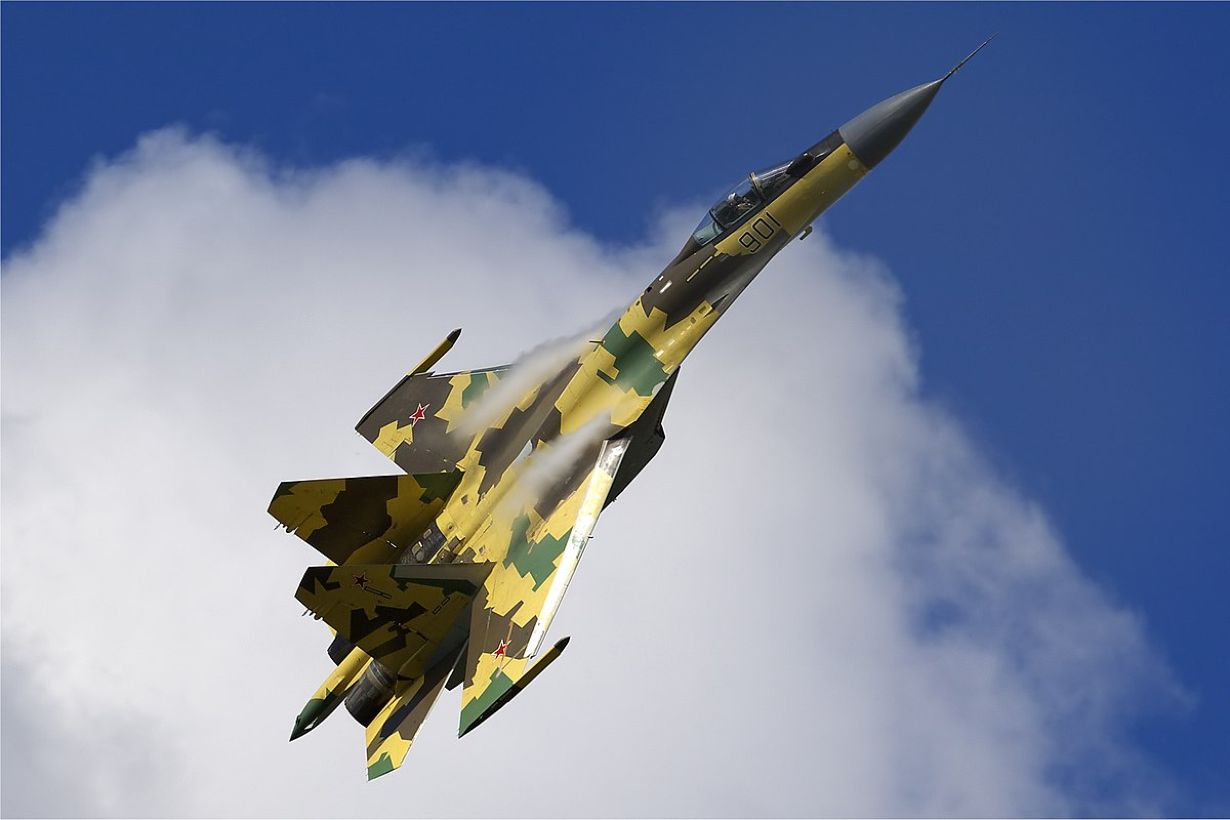Portuguese F-16 fighter jets, stationed in the Baltic region as part of NATO’s airspace defense, have intercepted 20 Russian planes within a month.
These Russian aircraft were found to violate “air traffic regulations,” prompting the Portuguese jets to take action.
The Portuguese Air Force has stated that since April 1, they have conducted multiple interceptions of Russian planes in the Baltic region. These interceptions involved various aircraft types, including transport planes, fighter jets, and intelligence-gathering planes.
In a May 6 tweet, the Portuguese Air Force revealed, “The Portuguese F-16M fighters, operating from Siauliai Air Base, Lithuania, have already intercepted close to 20 aircraft from the Russian Federation since they took over the “Baltic Air Policing 2023″ mission, on April 1.”
Additionally, the Air Force released a photo showing a Portuguese Air Force F-16 intercepting two Russian Naval Aviation Su-27Ps and a Russian Aerospace Forces Il-20M.
Earlier, Russian Defense Minister Sergei Shoigu awarded pilots of the Su-27 fighters who, as Moscow says, “prevented” a border violation by a US MQ-9 Reaper drone. The US drone eventually crashed into the Black Sea.
Os caças F-16M portugueses, a operar a partir da Base Aérea de Siauliai, Lituânia, já intercetaram perto de 20 aeronaves da Federação Russa, desde que assumiram a missão “Baltic Air Policing 2023”, a 1 de abril.
Saiba mais em: https://t.co/qTjzhl91A2#ForçaAérea #NATO #F16M pic.twitter.com/o7nTNO6klA
— Força Aérea Portuguesa (@fap_pt) May 6, 2023
Starting on April 1, Portugal’s Air Force took on the responsibility of policing Baltic airspace as the Lead Nation in the ‘Baltic Air Policing mission.’
The mission involves 85 military personnel and four F-16s stationed at the Siauliai Air Base in Lithuania for the next three months.
In response to violations of air traffic regulations near NATO borders, fighter jets are promptly deployed whenever an aircraft fails to adhere to established protocols.
These regulations mandate the disclosure of flight plans, the establishment of communication with air traffic control authorities, and the transmission of a transponder signal.

At present, Portugal has deployed a total of 650 military personnel across several NATO missions in Eastern Europe.
These missions entail diverse roles and locations within the region. Among the deployments, Portugal has stationed the crew of a naval frigate in the Baltic Sea, while 146 marines are stationed in Lithuania.
Additionally, a P3 maritime patrol plane is operated by 39 military personnel in Italy, and a contingent of 230 soldiers from the army, navy, and air force is stationed in Romania.
Growing Tensions Between NATO And Russia
The recent interceptions of Russian aircraft by NATO forces, including the Portuguese Air Force, reflect ongoing tensions over airspace control in the region, which have become more pronounced since Russia’s full-scale invasion of Ukraine.
In a separate incident on May 5, a Russian fighter jet intercepted a Polish plane carrying out a patrol mission for the European Union’s border agency over the Black Sea.
As Poland’s border force reported on May 7, the Russian Sukhoi Su-35 aircraft involved in the incident did not establish radio communication prior to engaging in what was described as “aggressive and dangerous maneuvers.”
The Russian plane allegedly approached the border guard plane on three separate occasions, disregarding the necessary safety distance that should be maintained.
Poland’s border force explained that the Russian aircraft reportedly crossed the path of the Polish plane at a dangerously close distance of “around five meters” and even flew directly in front of the nose of the aircraft.

The dangerous maneuvers executed by the Su-35 initially caused a loss of altitude for the Polish aircraft. However, the Polish crew managed to land their aircraft safely at Mihail Kogălniceanu Airport in Romania at 1350 hours.
In response to the incident, the center pre-alerted fighter jets from the Romanian Air Force and the Spanish Air Force. While these aircraft were not deployed, they were kept on standby and prepared to intervene if the situation escalated and their presence became necessary.
At the time of the incident, the unarmed Polish plane monitored migration risks and was located approximately 60 kilometers east of Romanian airspace.
The aircraft had been deployed in Romania since April 19 as part of a joint operation organized by Romania and coordinated by Frontex, the European Border, and Coast Guard Agency. The operation involves the participation of Spain, Sweden, and other countries.
Speaking on Polish television, Polish government spokesman Piotr Muller described the incident as a “planned provocation by Russia.”
The statement suggests that Poland views the Russian interception as a deliberate and premeditated act meant to provoke and potentially escalate tensions.
However, this is not the first incident involving Russian aircraft deemed dangerous or threatening by other countries. In March, a Russian fighter sprayed jet fuel on a US Reaper drone, forcing the drone to crash into the Black Sea.
- Contact the author at ashishmichel(at)gmail.com
- Follow EurAsian Times on Google News




